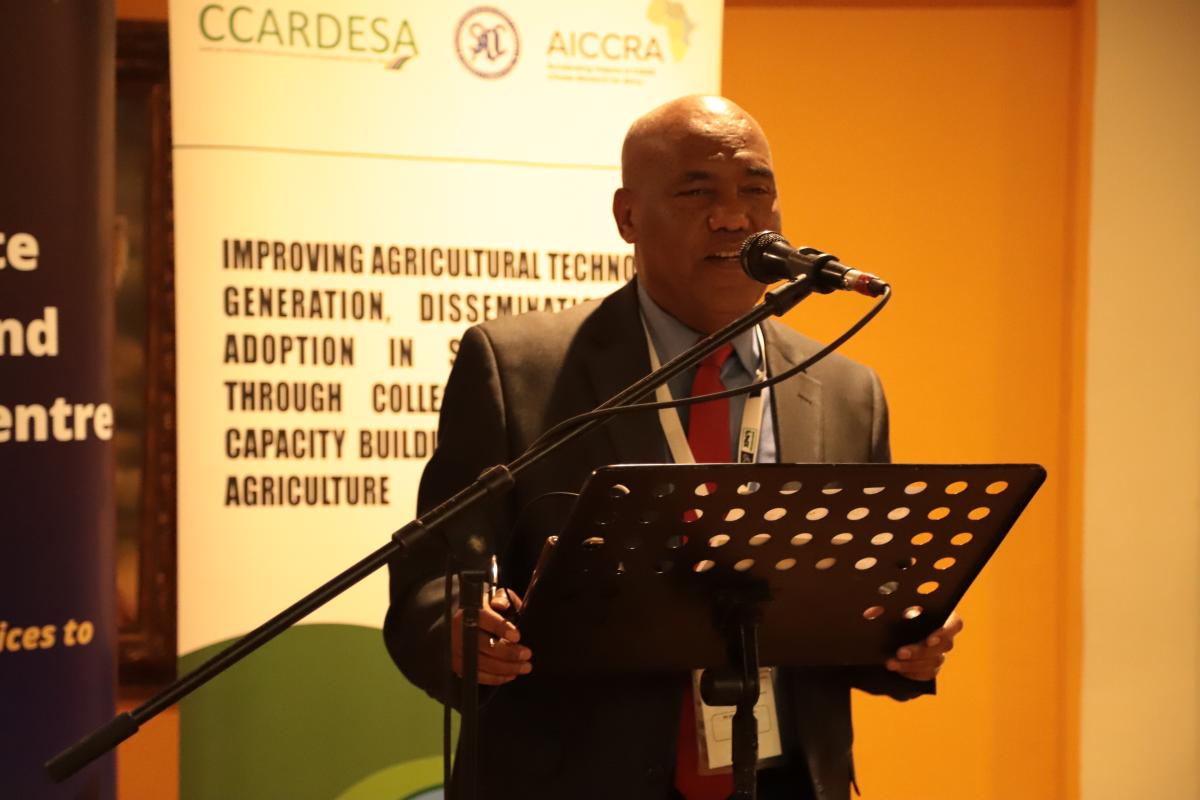CCARDESA developed its 5-yearMedium Term Operational Plan (MTOP) in 2013, which was approved by the General Assembly in May 2014. The Development of the MTOP involved a number of stakeholders who were consulted and made input towards the content of the plan. The consultation process involved the National Agricultural Research and Extension Systems (NARES), development partners, international agricultural research centres, farmer organizations and others.
The MTOP outlined CCARDESA’s priorities and general approaches to programme implementation between 2014 and 2018. It also contained an elaborate list of activities under 5 thematic areas, expected outputs and a results framework. Within the results framework, indicators were identified, supported by specific annual cumulative targets during the 5 year period. This MTOP will end in December 2018.
The Operational Plan of an organisation is always anchored on the corporate strategic plan and is designed to translate the plan into actionable components within a given time frame. Unfortunately, the CCARDESA MTOP for the period 2014-2018 did not stem from a documented corporate strategy. This was a major weakness of the first five years of operation, notwithstanding the fact that the MTOP still gave a valuable basis for annual activity planning and guidance to the organisation between 2014 and 2018.
Since the current MTOP will expire in December 2018, CCARDESA is in need of a long term Strategic Plan which will provide a corporate definition of the visionary road that the institution should travel in the next 10 years. On the basis of the Strategic Plan, a concise and clear medium term operational plan shall be developed, to provide the implementation details of the Strategic Plan in the initial 5 years.
In order for CCARDESA to adequately serve its clients and deliver on its mandate, the Strategic Plan would need to respond to the needs of the SADC region in relation to the development and deployment of agricultural innovations and management practices. Along with this, the supportive environment such as gender, youth empowerment, sustainable use of natural resources, climate change and adaptation of agricultural practices within agricultural value chains to the envisaged changes, enabling policy frameworks and social/environmental responsibility have to be favourable and clear within the Strategic Plan. Furthermore, the Strategic Plan will need to be ‘forward looking’ by recognising the current situation in the SADC region and clearly showing that CCARDESA, through the implementation of the strategy, will be an indispensable relevant factor in contributing to the objectives set forth in the key policies of SADC Member States as well as the continental and global commitments they have signed for.
As a subsidiary organization of SADC, CCARDESA has to fulfil its role of contributing to the improvement of food security and livelihoods of the people, especially the small scale farmers and rural communities in general. Some of the key regional policy and strategic issues the CCARDESA Strategy will have to address are the regional needs expressed in the SADC Regional Agricultural Policy (SADC–RAP) and its investment plan, the revised Regional Indicative Strategic Development Plan (RISDP), the SADC Food and Nutrition Strategy (2015-2025), the SADC Industrialization Strategy and Road Map (2015-2063), the Climate Change Strategy and Action Plan (2015), and others.
At continental and global level, the Strategy will have to address the needs contained in the Comprehensive Africa Agriculture Development Programme (CAADP), together with the Malabo Declaration and the Sustainable Development Goals. In this regard, SDGs 1, 2 and 12 are the most critical to which CCARDESA is required to contribute directly.
CCARDESA therefore seeks the services of two consultants to develop its strategic and operational plans, both of which should be responsive to the needs of the region and set the organization on a trajectory that will bring impact to the food security and livelihoods of the communities in Southern Africa.
Objectives
The overall objective of this assignment, therefore, is to develop a detailed 10-year CCARDESA Strategic Plan and a 5-year medium term operational plan, based on the needs of CCARDESA and its stakeholders.






